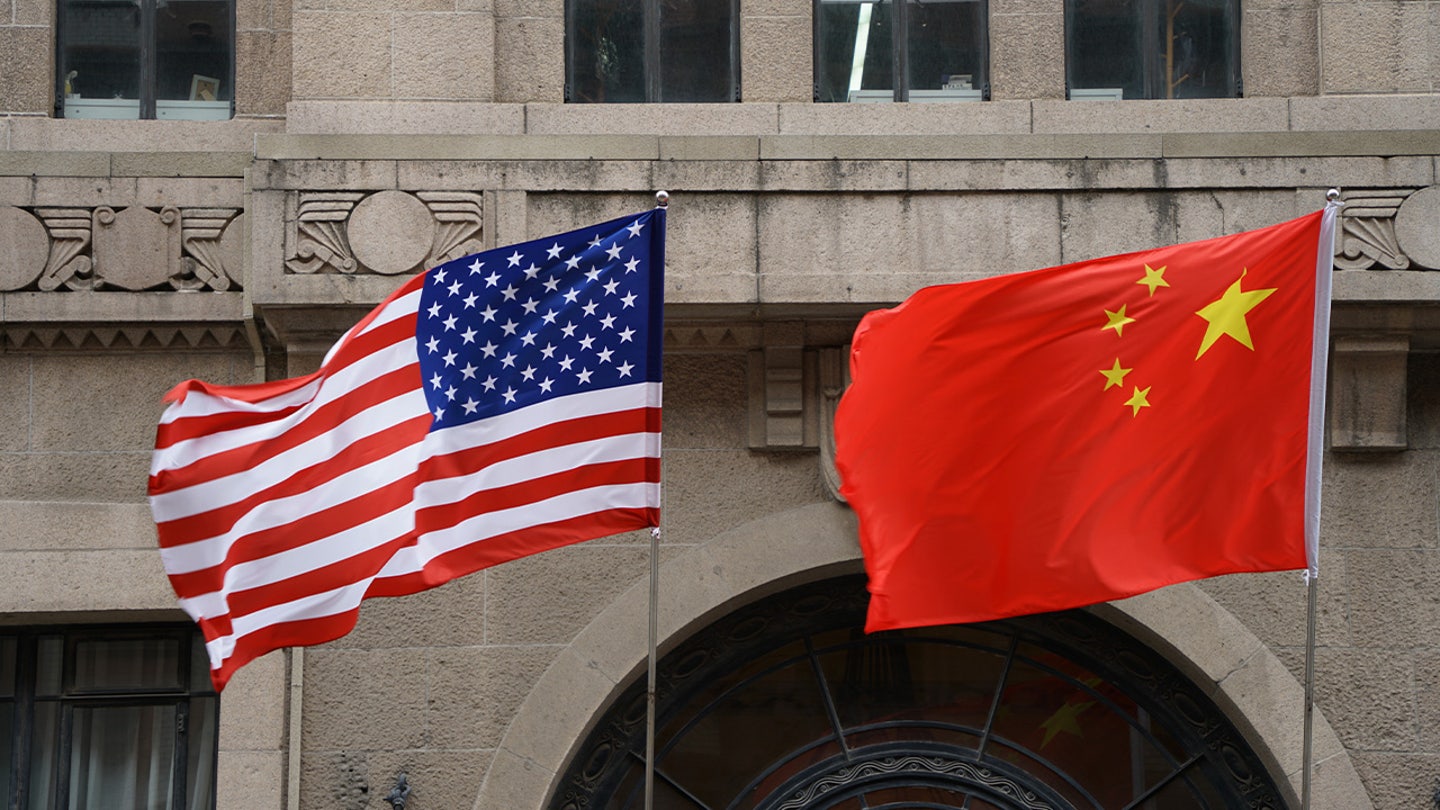
Trump learns a lesson grounded in faith, how best to stand tough on trade with China
Entities mentioned:
- Donald Trump: Power, Determination, Competitive spirit
- China: Control, Power, Competitive spirit
- Steven Mnuchin: Determination, Professional pride, Loyalty
- Rabbi Levi Yitzchok of Berditchev: Righteousness, Faith, Influence
Article Assessment:
Credibility Score: 55/100
Bias Rating: 75/100 (Lean Right)
Sentiment Score: 65/100
Authoritarianism Risk: 55/100 (Mixed/Neutral)
Bias Analysis:
The article leans heavily right, presenting Trump's policies in an overwhelmingly positive light without significant counterarguments. It uses religious rhetoric to support political positions, which is characteristic of right-wing messaging in the US.
Key metric: US-China Trade Balance
As a social scientist, I analyze that this article portrays a continuation of Trump's aggressive trade policies towards China in a hypothetical second term. The focus is on using tariffs and economic pressure to reshape the US-China trade relationship and reduce US dependence on Chinese goods and resources. The article suggests these policies are having some success in reshoring manufacturing and strengthening alliances, but acknowledges short-term economic costs. The integration of religious teachings into trade policy rationale is an unusual element that appears aimed at justifying potentially painful economic measures through appeals to faith and perseverance.

Trump gave the Oval Office a gilded makeover – and covered the cost himself
Entities mentioned:
- Donald Trump: Pride, Legacy, Recognition
- White House: Professional pride, Legacy, Influence
- Joe Biden: Legacy, Duty, Influence
Article Assessment:
Credibility Score: 65/100
Bias Rating: 55/100 (Center)
Sentiment Score: 70/100
Authoritarianism Risk: 30/100 (Generally Democratic)
Bias Analysis:
The article presents a generally neutral tone, providing factual details about the changes made to the Oval Office. However, there's a slight lean towards positive framing of Trump's actions, emphasizing his personal financing and 'golden touch' without critical perspectives.
Key metric: Presidential Approval Rating
As a social scientist, I analyze that this article's focus on Trump's personal financing of White House renovations and aesthetic changes may impact public perception of his presidency. The emphasis on gold accents and luxurious additions could be seen as either a display of wealth and success or as excessive and out of touch with average Americans. This could potentially influence approval ratings, particularly among different socioeconomic groups. The article's highlighting of Trump's personal investment in these changes may also affect perceptions of his commitment to the office and his willingness to use personal resources for what he sees as improvements to the nation's most iconic building.
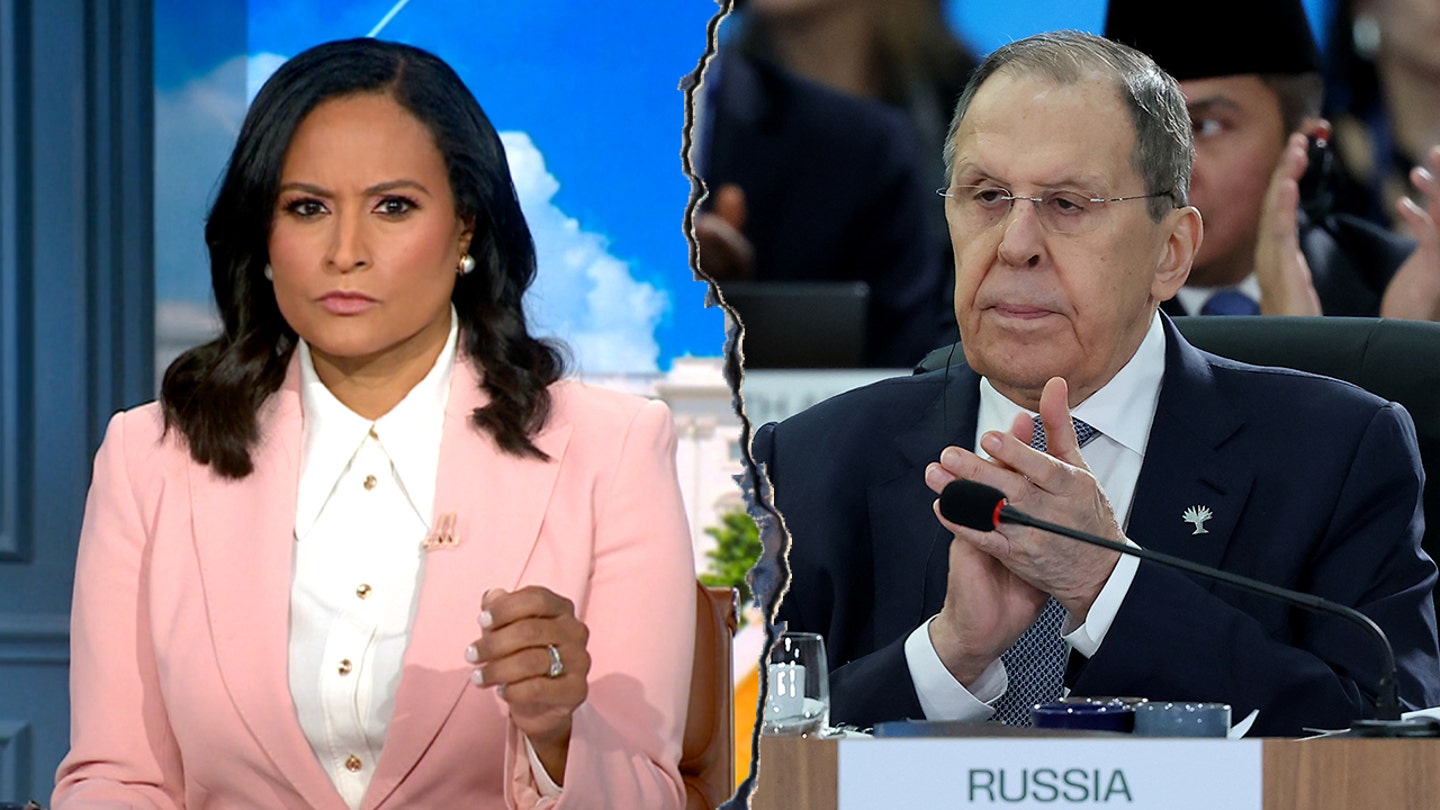
Russian foreign minister accuses NBC host of wanting something to 'sell' during tense Ukraine exchange
Entities mentioned:
- Kristen Welker: Professional pride, Determination, Duty
- Sergey Lavrov: Control, Loyalty, Self-preservation
- Volodymyr Zelenskyy: Unity, Self-preservation, Determination
- Vladimir Putin: Power, Control, Pride
- Donald Trump: Influence, Power, Recognition
Article Assessment:
Credibility Score: 70/100
Bias Rating: 55/100 (Center)
Sentiment Score: 35/100
Authoritarianism Risk: 45/100 (Mixed/Neutral)
Bias Analysis:
The article presents both Russian and American perspectives, though it gives more space to the American viewpoint. The inclusion of Trump's statements and the framing of Lavrov's responses suggest a slight lean towards Western perspectives, but overall maintains a relatively balanced approach.
Key metric: International Relations and Diplomacy
As a social scientist, I analyze that this article highlights the ongoing tension between Russia and the West regarding the conflict in Ukraine. The exchange between NBC's Kristen Welker and Russian Foreign Minister Sergey Lavrov demonstrates Russia's refusal to acknowledge its actions as an invasion, instead framing it as a 'special military operation'. This semantic dispute reflects deeper geopolitical conflicts and differing narratives about the situation. The article also touches on the role of the United States, particularly President Trump's involvement in negotiations, which suggests a complex diplomatic landscape with potential implications for global power dynamics and conflict resolution efforts.

Russia says Ukrainian drones hit nuclear power plant during Independence Day strikes
Entities mentioned:
- Russia: Control, Self-preservation, Security
- Ukraine: Freedom, Self-preservation, Determination
- U.N. nuclear watchdog: Security, Duty, Professional pride
- Rafael Mariano Grossi: Security, Duty, Professional pride
- Volodymyr Zelenskyy: Unity, Determination, Security
- United States: Influence, Security, Power
Article Assessment:
Credibility Score: 65/100
Bias Rating: 55/100 (Center)
Sentiment Score: 30/100
Authoritarianism Risk: 35/100 (Generally Democratic)
Bias Analysis:
The article presents information from both Russian and Ukrainian sources, attempting to balance perspectives. However, there's slightly more detail on Ukrainian statements, possibly indicating a slight lean towards Western sources.
Key metric: International Conflict and Security
As a social scientist, I analyze that this article highlights the ongoing tensions between Russia and Ukraine, particularly on Ukraine's Independence Day. The reported drone attacks on Russian infrastructure, including a nuclear power plant, demonstrate the escalation of the conflict and its potential to affect critical facilities. This raises significant international security concerns, especially regarding nuclear safety. The contrasting narratives from Russian and Ukrainian sources about the number and effectiveness of drone attacks reflect the information warfare aspect of this conflict. President Zelenskyy's speech emphasizes Ukraine's determination for independence and international recognition, while also acknowledging the complex geopolitical dynamics involving the US and Russia. The incident underscores the volatile nature of the conflict and its potential to impact global security and diplomatic relations.
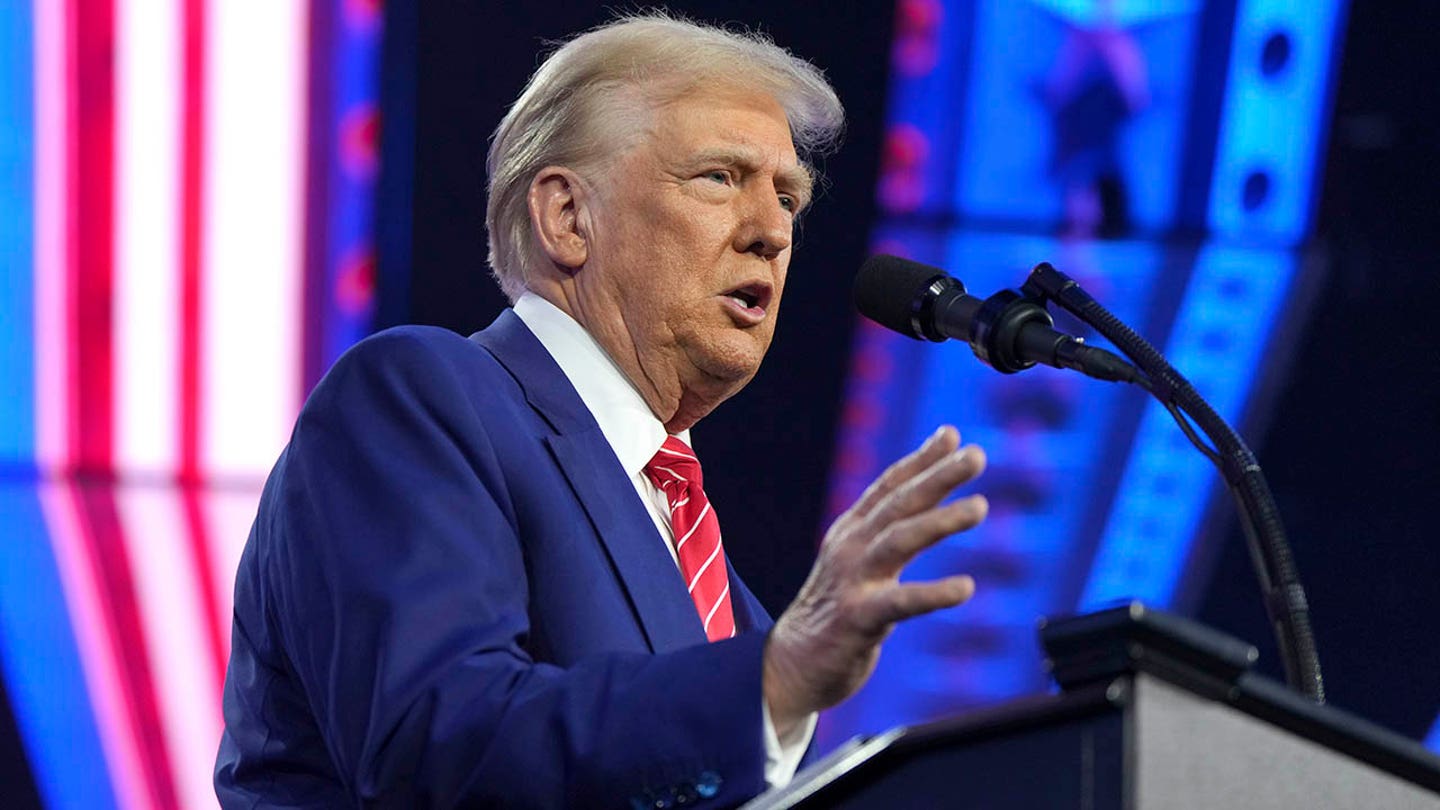
Trump tells Grassley to tell Democrats 'go to HELL' over blocked judicial nominees in Senate
Entities mentioned:
- Donald Trump: Power, Control, Indignation
- Chuck Grassley: Duty, Loyalty, Wariness
- Senate Democrats: Control, Resistance, Power
- Alina Habba: Ambition, Professional pride, Self-preservation
- Judge Matthew Brann: Justice, Duty, Professional pride
Article Assessment:
Credibility Score: 70/100
Bias Rating: 55/100 (Center)
Sentiment Score: 30/100
Authoritarianism Risk: 65/100 (Authoritarian Tendencies)
Bias Analysis:
The article presents multiple viewpoints, including Trump's criticism and Grassley's defense of the blue slip tradition. While it gives more space to Trump's perspective, it also includes factual context about the constitutional process and recent judicial rulings.
Key metric: Judicial Branch Appointments
As a social scientist, I analyze that this article highlights a growing tension between executive power and Senate traditions in the judicial appointment process. Trump's frustration with the 'blue slip' custom reflects a broader struggle for control over the judiciary, which has significant implications for the balance of power in the US government. The slowdown in judicial appointments during Trump's current term, compared to his first, indicates a shift in the political landscape and the effectiveness of opposition tactics. This conflict could lead to further polarization in the appointment process and potentially alter long-standing Senate norms, affecting the composition and perceived legitimacy of the federal judiciary in the long term.
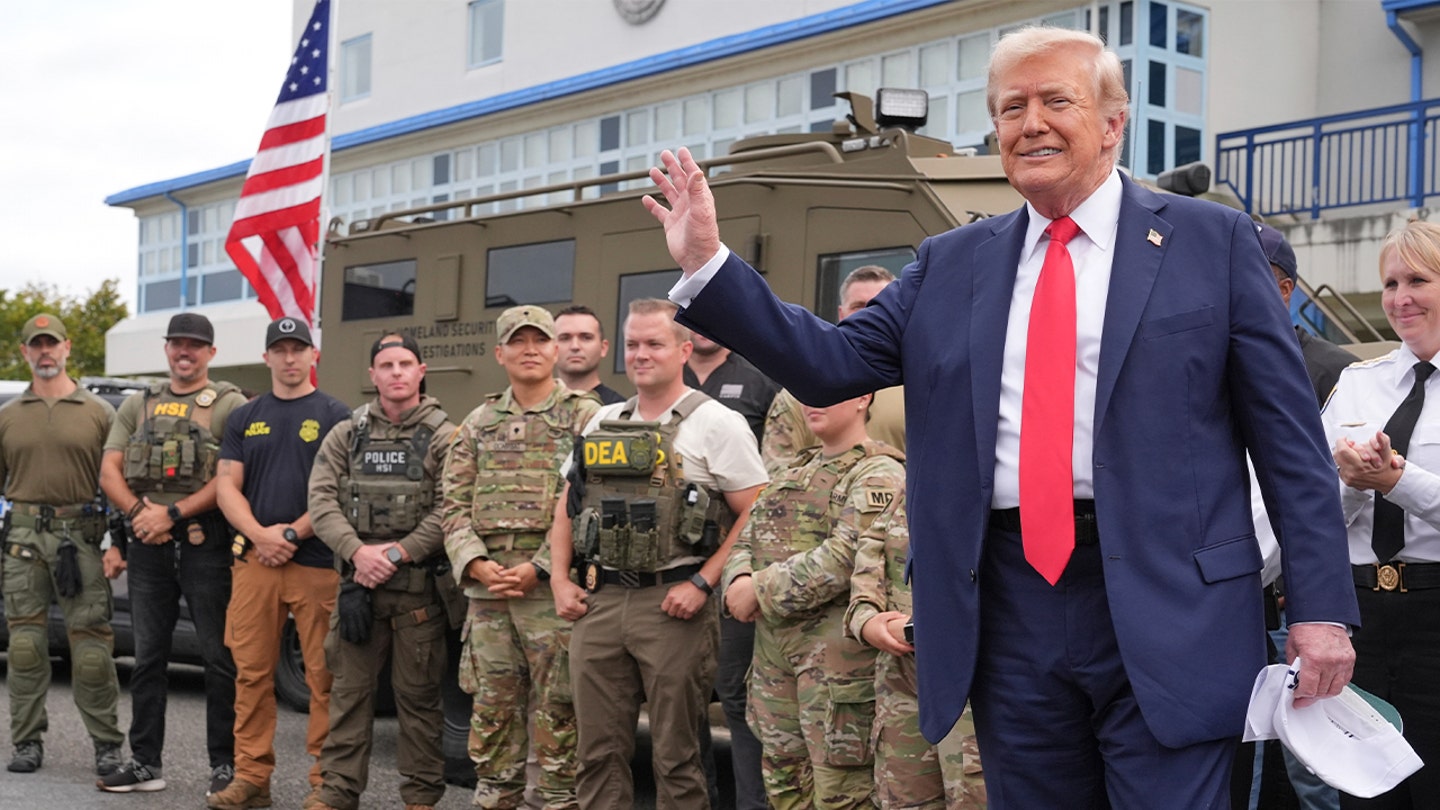
Trump's week shaped by crime agenda, potential guard deployment to Chicago
Entities mentioned:
- Donald Trump: Power, Control, Influence
- Pam Bondi: Duty, Justice, Professional pride
- Brandon Johnson: Self-preservation, Righteousness, Indignation
- J.B. Pritzker: Duty, Self-preservation, Wariness
- Wes Moore: Duty, Security, Cooperation
- Muriel Bowser: Duty, Security, Self-preservation
Article Assessment:
Credibility Score: 70/100
Bias Rating: 55/100 (Center)
Sentiment Score: 35/100
Authoritarianism Risk: 65/100 (Authoritarian Tendencies)
Bias Analysis:
The article presents multiple viewpoints, including Trump's statements and responses from Democratic leaders. While it leans slightly towards critiquing Trump's approach, it maintains a relatively balanced presentation of facts and perspectives.
Key metric: Crime Rate in Major Cities
As a social scientist, I analyze that this article highlights President Trump's focus on crime reduction in major U.S. cities, particularly Chicago and Washington D.C., through the potential deployment of National Guard troops and increased federal law enforcement presence. This approach reflects a centralized, federal-level intervention in local matters, which could impact crime rates but also raises concerns about federal overreach and political motivations. The President's rhetoric and actions suggest a belief that forceful intervention can quickly reduce crime, but this approach may overlook complex socio-economic factors contributing to urban crime. The resistance from local Democratic leaders indicates a political divide in approaches to public safety and federalism. This conflict could affect the implementation and effectiveness of crime reduction strategies, potentially impacting the key metric of crime rates in major cities.
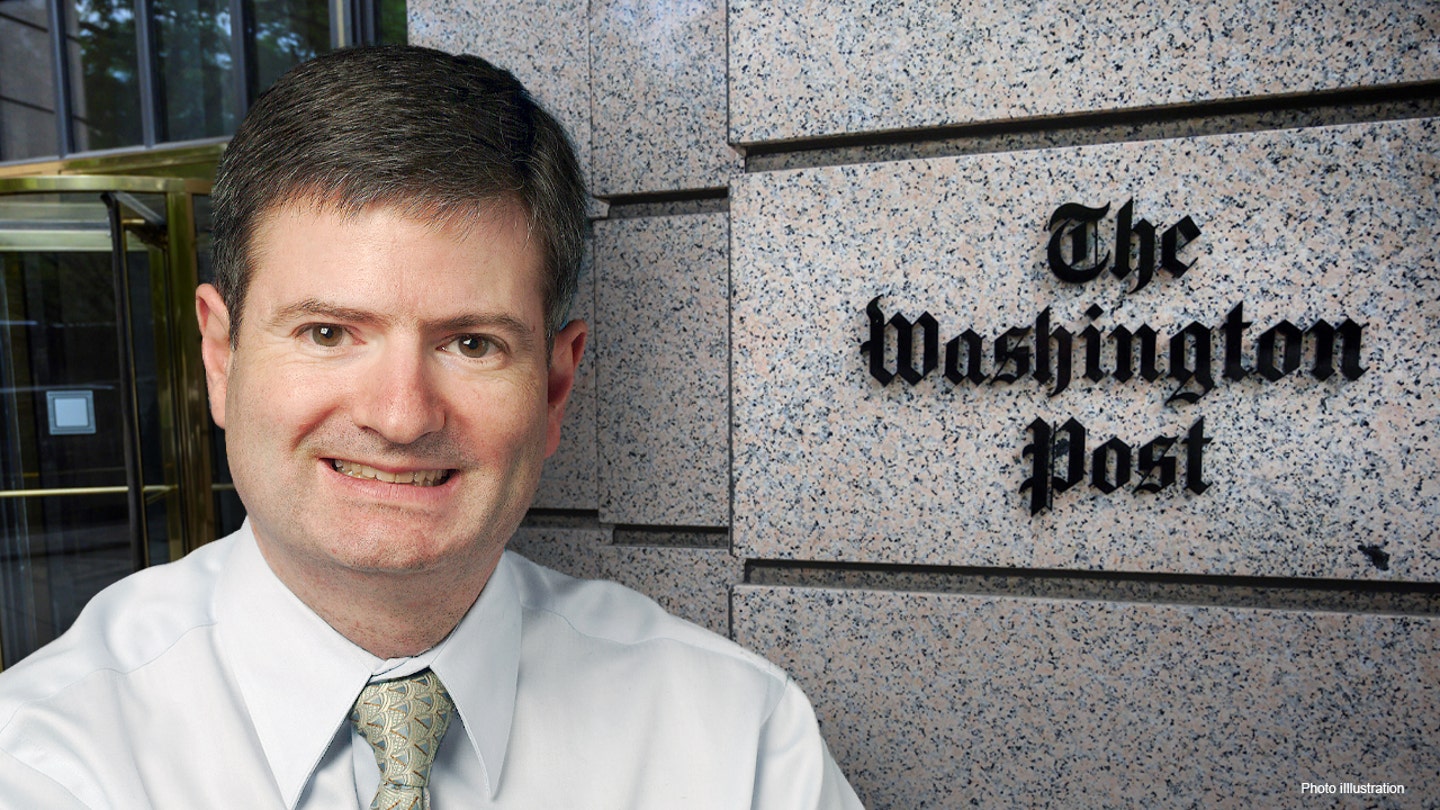
Ex-Washington Post fact checker owns up to poorly-aged report but remains defiant against his critics
Entities mentioned:
- Glenn Kessler: Professional pride, Self-respect, Duty
- Donald Trump: Power, Influence, Control
- The Washington Post: Credibility, Influence, Professional pride
- Matt Murray: Control, Professional pride, Influence
- Ted Cruz: Righteousness, Competitive spirit, Influence
Article Assessment:
Credibility Score: 70/100
Bias Rating: 55/100 (Center)
Sentiment Score: 45/100
Authoritarianism Risk: 30/100 (Generally Democratic)
Bias Analysis:
The article presents multiple viewpoints, including critics of fact-checking, but gives more space to Kessler's perspective. It maintains a relatively neutral tone while discussing controversial topics, suggesting a slight center-right lean.
Key metric: Public Trust in Media
As a social scientist, I analyze that this article highlights the challenges facing fact-checkers and traditional media in maintaining public trust. The piece reveals tensions between journalistic integrity, political polarization, and the rapid spread of information (and misinformation) in the digital age. Kessler's reflections on his career and the changing landscape of fact-checking underscore a shift in how information is consumed and verified by the public. This shift has significant implications for democratic discourse and the role of media in shaping public opinion. The article also touches on internal struggles within news organizations to adapt to these changes, as evidenced by discussions about ombudsmen and editorial decisions.

FBI raid of John Bolton's home reportedly linked to classified documents probe
Entities mentioned:
- John Bolton: Self-preservation, Influence, Recognition
- FBI: Justice, Duty, Professional pride
- Donald Trump: Revenge, Power, Control
- Kash Patel: Duty, Loyalty, Professional pride
- Dan Bongino: Justice, Duty, Professional pride
- JD Vance: Loyalty, Duty, Influence
Article Assessment:
Credibility Score: 65/100
Bias Rating: 55/100 (Center)
Sentiment Score: 30/100
Authoritarianism Risk: 45/100 (Mixed/Neutral)
Bias Analysis:
The article presents multiple viewpoints and sources, including both pro-Trump and anti-Trump perspectives. However, there's a slight lean towards emphasizing Trump's negative comments about Bolton, which could be seen as slightly center-right in framing.
Key metric: Government Transparency and Accountability
As a social scientist, I analyze that this article highlights ongoing tensions between political figures and government institutions, particularly concerning the handling of classified information. The raid on John Bolton's properties suggests a continued focus on document security and potential mishandling of sensitive information by former officials. This event may impact public perception of government transparency and accountability, as it demonstrates that even high-ranking former officials are subject to investigation. The involvement of the FBI and the public statements by current administration officials underscore the seriousness of the matter. However, the political context, including Bolton's criticized relationship with Trump, adds complexity to the interpretation of these events. This situation may further polarize public opinion on government institutions and their impartiality in conducting investigations, potentially affecting trust in these institutions.

Rhode Island prosecutor in viral arrest video placed on unpaid leave, job future unclear
Entities mentioned:
- Devon Flanagan: Self-preservation, Power, Pride
- Peter Neronha: Professional pride, Duty, Control
- Rhode Island Attorney General's office: Justice, Professional pride, Control
- New Port Police Department: Duty, Justice, Control
Article Assessment:
Credibility Score: 75/100
Bias Rating: 50/100 (Center)
Sentiment Score: 30/100
Authoritarianism Risk: 25/100 (Generally Democratic)
Bias Analysis:
The article presents multiple perspectives, including direct quotes from the Attorney General and details of the incident. It maintains a relatively neutral tone, presenting facts without overtly favoring any particular viewpoint.
Key metric: Public Trust in Legal Institutions
As a social scientist, I analyze that this incident significantly impacts public trust in legal institutions. The behavior of a high-ranking legal professional abusing her position undermines the credibility of the justice system. The Attorney General's response, while acknowledging the severity, also reveals the challenges in maintaining a competent workforce, potentially affecting public perception of the office's integrity. This event may lead to increased scrutiny of legal professionals and demands for accountability, potentially resulting in policy changes or increased oversight within the Attorney General's office.

Conservative activist slams Cracker Barrel; company left reeling after logo redesign
Entities mentioned:
- Robby Starbuck: Righteousness, Moral outrage, Influence
- Cracker Barrel: Recognition, Influence, Unity
- Steve Smotherman: Professional pride, Influence, Recognition
- Rachel CampBell: Enthusiasm, Unity, Professional pride
- Gilbert Dávila: Influence, Recognition, Professional pride
- Human Rights Campaign (HRC): Justice, Influence, Recognition
Article Assessment:
Credibility Score: 55/100
Bias Rating: 75/100 (Lean Right)
Sentiment Score: 25/100
Authoritarianism Risk: 35/100 (Generally Democratic)
Bias Analysis:
The article leans right, primarily presenting the conservative activist's perspective with limited counterbalance. It uses charged language like 'anti-woke crusader' and 'devastating video takedown', indicating a sympathetic stance towards the conservative viewpoint.
Key metric: Cultural Polarization Index
As a social scientist, I analyze that this article highlights the growing cultural divide in America, particularly around corporate branding and LGBTQ+ inclusivity. The controversy surrounding Cracker Barrel's logo change and LGBTQ+ initiatives demonstrates how traditionally conservative-leaning brands are navigating changing social expectations. This situation likely increases the Cultural Polarization Index by intensifying the perceived conflict between traditional values and progressive corporate policies. The activist's call for boycotts and the framing of the issue as a broader cultural struggle could further entrench ideological divisions among consumers and potentially impact corporate decision-making in the future.